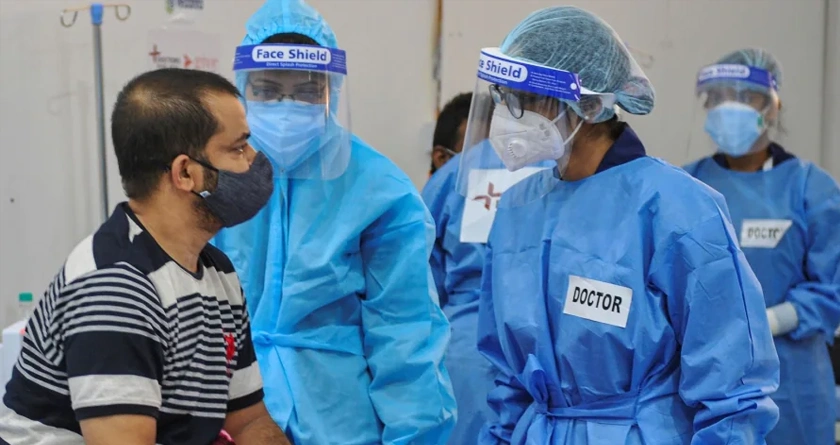
What is Bariatric Surgery& All relevant Info
Important Details on Bariatric Surgery.
Friday, 8th October 2021
Obesity is a very common issue in today’s times and losing weight to slim down is the dream of many. But most people often mistake obesity for a cosmetic issue merely even though, it is in reality, a metabolic disorder. Moreover, obesity increases the risk of many other health issues such as Type 2 Diabetes, Cardiovascular diseases, High Blood Pressure, Obstructive Sleep Apnea, fatty liver, joint pains, Breathing issues, High Cholesterol Issue, Infertility, PCOD, Gall bladder issue, stroke, osteoarthritis, Gout and more.
The cycle of losing weight and putting on weight continues for many people until they think of an option like surgical removal of excess fat also referred to as Bariatric surgery. For the sufferers of morbid obesity, Bariatric surgery is the best option to achieve sustained weight loss.
“Unfortunately, today obesity has reached epidemic levels. It is a silent killer and more people are dying of obesity and related diseases than any other non-communicable disease. When it comes to treatment, there are many myths and it is important to understand that just like any other disease, obesity needs to be treated according to the stage and severity of the disease,” states Dr. AparnaGovilBhasker, Laparoscopic and bariatric surgeon at the Currae, Namaha, Apollo Spectra, Saifeee Hospitals, Mumbai.
What is meant by Bariatric Surgery?
A gamut of various weight loss surgeries is collectively referred to as Bariatric surgery. Suffers of chronic obesity and related health issues are advised to go for Bariatric surgery. There are multiple types of Weight Loss Surgeries some of which are listed below-
- Sleeve gastrectomy
- Gastric bypass surgeries
- Banded weight-loss surgical procedures
When coupled with lifestyle modifications and dieting bariatric surgeries can bring about long-term sustained weight loss results. But, are these surgeries safe?
Recently, Lizelle D’Souza, wife of Choreographer and Director, Remo D’Souza talked to Times of India about her story of weight loss. “I have a target to lose another 10 kilos by December, post that, I plan to go for a tummy tuck and Remo is supporting me, my kids are supporting me,” said Lizelle.
Bariatric surgery losing weight
“Bariatric surgery leads to weight loss through multiple mechanisms. Restriction of food intake, a feeling of fullness after smaller meals, reduced appetite, mal-absorption of nutrients, hormonal changes, changes in the gut bacteria, etc is some of the mechanisms that will help you to cut down on those excess kilos, ” Dr.AparnaGovilBhasker states further.
Usually, the bariatric surgeon is likely to recommend the kind of surgery that is most suitable for you post a complete clinical evaluation. Opting for bariatric surgery will reduce the chances of falling prey to fatal health conditions such as heart disease, stroke, high BP, Sleep apnea, non-alcoholic fatty liver, and Type 2 Diabetes. Furthermore, it paves the way for improvements with regard to conditions like gout, joint pain, PCOS, and infertility and also reduces the risk of many types of cancers triggered by obesity.
Who all are eligible for the surgery?
As per the Obesity and Metabolic Surgery Society of India (OSSI)’s guidelines, a person with BMI ≥ 35 Kg/m2 can opt for the bariatric surgery.
Preparation for the surgery
Post clinical evaluation, the obese patient will be made to go through certain medical tests and his or her medical fitness will be analyzed by specialists. Certain diet-related instructions will then be given to the patient based on his or her body weight and clinical profile. The patient must adhere to these dietary instructions for about 7-15 days prior to the surgery. High carb and sugary foods will be dropped out of the patient’s diet and he or she will be asked to take lots of protein. Also, the patient will be asked to drop habits like alcohol consumption and smoking. In case the patient is detected with some kind of nutritional deficiencies, he or she will be administered nutritional supplements. Several consultations with the surgical team will take place so that the patient can clarify his or her doubts and remain free of stress prior to surgery.
What to expect post-surgery
You’ll be kept on fast for 24 hours post your surgery. During that time the patient will be administered intravenous fluids. For 15 days post-surgery the patient will just be given liquids and after two weeks only pureed food. After 1 month, a normal diet can be started but very small portions need to be taken at a time and you can take only 3 to 4 in a day. High carb, fatty and sugary foods are a strict no-no. You can take healthy, easily digest-able foods and intake of protein is recommended. After about 2-3 months post-surgery low impact workouts like walking, stretching, swimming and yoga may be undertaken.
The News Talkie Bureau
Source:
India.com











